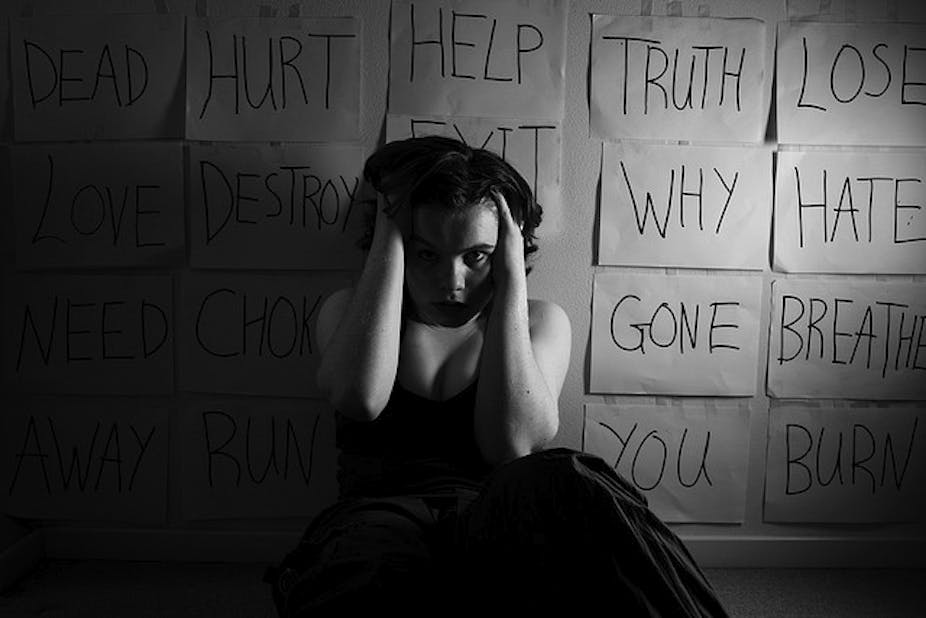Like death metal and grunge before it, emo music has copped more than its fair share of criticism since it rose to prominence a decade ago. Rather than being seen as an outlet for young people to express their emotions, emo music is often blamed as a catalyst for adolescents’ low moods.
There’s no doubt that emo music – a style of emotionally charged punk rock – is expressive and bleak. Themes of pain, loneliness and death feature prominently. But there’s no evidence that listening to this style of music, or any other, will cause you to feel depressed.
Perhaps the most well-cited research in this area is a 1998 study published in the Journal of Adolescence. To investigate the effects of music on young people’s mood states and their associations with chronic depression, the researchers asked 14 adolescent girls to listen to a 23-minute session of rock music.
The girls were compared with a control sample of chronically depressed females, who, for the same time period, were simply asked to sit and relax. The researchers found no differences or changes in the two groups’ observed or reported mood state. But, interestingly, the girls cortisol levels (a hormone associated with anxiety) decreased during and after their exposure to the music.

The researchers concluded that music had positive effects on physiological and biochemical functioning, even though an individual’s mood did not seem to change. These conclusions have since been widely accepted by music researchers.
A more recent study, published last year in the Archives of Pediatrics and Adolescent Medicine, views music as more of symptom than a cause of depression. Lead author Brian Primack claimed it’s more likely that depressed teenagers turn to music for emotional support.
His study measured 106 teenagers’ use of media via specialised mobile phones. The researchers phoned the teens as many as 60 times over an eight-week period to ask whether they were watching movies or TV, listening to music, surfing the internet, or reading.
Around half of the teens had been diagnosed with clinical depression. These teenagers listened to music an average of 9% of the time. Crucially, those who listened to lots of music were eight times more likely to be depressed than those who didn’t listen very much. By contrast, teenagers who read were far less likely to be diagnosed with depression.
This study implies that rather than contributing to depression, the music-listening preferences of teenagers are indicative of their depressive mood states.
This raises an interesting research question: if a teenager’s music listening habits are an indicator of emotional mood, could they be used, in combination with other tools, in the diagnosis of depression? As a music researcher, I’ll be watching this space.
In the meantime, let’s stop blaming emo music for corrupting and depressing a generation of teens. From devil worship to promiscuity, popular music has been accused of all sorts of things throughout human history. We don’t need to add depression to that list.
New to the emo genre? Here’s a track by Flyleaf called I’m so sick:

